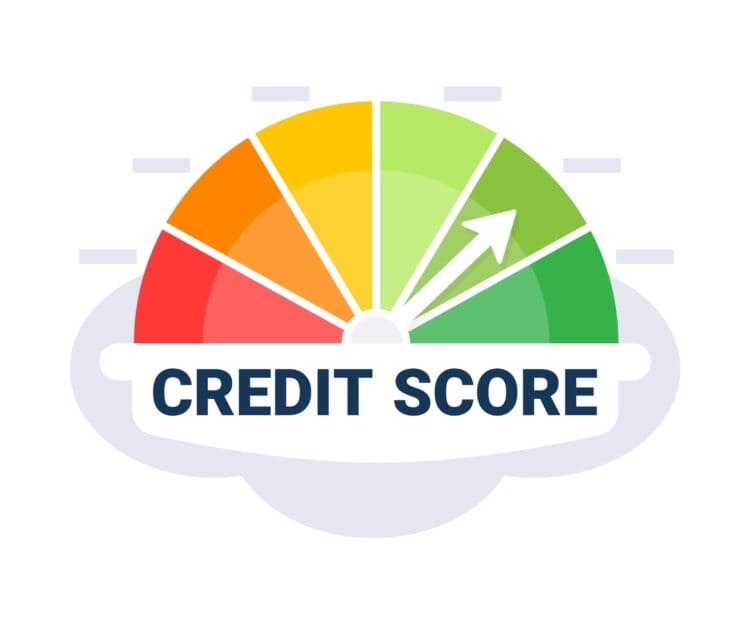Comedian Robin Williams once said that divorce rips your heart out through your wallet – and if you’ve ever been through a split, you might be inclined to agree. Between the attorney fees, court costs, division of property, alimony, and countless other expenses, you can expect cash to leave your bank account faster than your mother-in-law can ruin a family gathering.
To make matters worse, those who are forced to start over in a new home are faced with additional financial obligations like buying new furniture and appliances. Many people are thankful for credit cards in those moments, but those with poor credit don’t have it so easy.
The impact of divorce on credit
There are plenty of reasons why a person’s credit might not be great after a divorce, but some common scenarios include one spouse taking on an unfair share of the marital debt, or a partner who never had a chance to build their credit because all of the household accounts were in their spouse’s name. Others might have been forced to max out their credit cards to pay their divorce lawyers.
“Divorce itself does not affect credit. However, outstanding debt, late payments, and foreclosures can definitely have a negative impact,” said Perry Gambrell, a CPA based in Flagler Beach, Florida.
Late payments often become a reality post-divorce, even if they were never an issue before, as costly splits can leave couples feeling financially strained. New financial obligations such as alimony and child support may also create financial hardships and result in late or missed payments.
It’s also important to note that when joint accounts get closed, available credit gets reduced. This can impact credit utilization ratios and lower a person’s credit score. In addition, the closure of joint accounts impacts the length of a person’s credit history, which can result in a lower score.
Gambrell said that some people may want to keep their credit, particularly credit cards, separate in their marriage. This way, no one can incur credit in their spouse’s name or affect the other person’s credit by failing to make payments on a joint account.

How to make big purchases with a tiny credit score
If your credit has taken a hit after your divorce, you can still purchase the things you need for your new abode. However, if you have expensive taste and are drawn to designer tags, you’ll want to pause that costly habit for a while and start looking for alternative ways to purchase major household goods.
The great news is that we live in the era of Facebook Marketplace and other online “garage sale” sites. This makes it pretty darn easy to score decent purchases for a fraction of the original sticker price – and sometimes even for free (be sure to check out your local “Buy Nothing” group). Old-fashioned garage sales, estate sales, and thrift stores also remain excellent options, along with accepting hand-me-downs from friends and family members who have decided to upgrade their own home furnishings. If you’re crafty, you can always pick up some ugly furniture from a garbage pile and give it a new life – it’s truly amazing what a good clean and a gallon of paint can do!
If you fancy yourself a skilled barterer, you might even consider trading your way to a new sofa or refrigerator (check out this girl who traded up from a bobby pin to a whole house). It might sound crazy, but there’s no reason why you can’t do it too!
The benefits of turning your back on new and expensive home goods is two-fold – you save money and the environment by making more sustainable choices, all while working to improve your credit at the same time.
Improving your credit score after divorce
If your new credit score leaves much to be desired, don’t panic. There are ways to improve your score, but just know that it won’t jump from “poor” to “good” overnight.
“If you’re looking to improve your credit, the first thing you should do is go through your credit report and determine if all items are correct. Be sure to file disputes on any incorrect items. After that, focus on paying down credit card balances relative to open lines of credit,” Gambrell said.
Those who have accounts that are in collections or seriously delinquent should work on bringing them current. Consumers can often negotiate with creditors to set up payment plans or settlements.
If you feel overwhelmed by the state of your credit and the amount of debt you’re carrying, you may want to speak with a reputable credit counseling agency. These non-profit organizations create debt management plans for consumers to conquer their debt head-on. This may include consolidated monthly payments to all creditors, reduced monthly payments, lower interest rates, and personalized budgeting advice.
Improving your credit score is a gradual process that requires patience. However, if you stay on track and follow the tips listed above, you’ll see positive changes over time.






